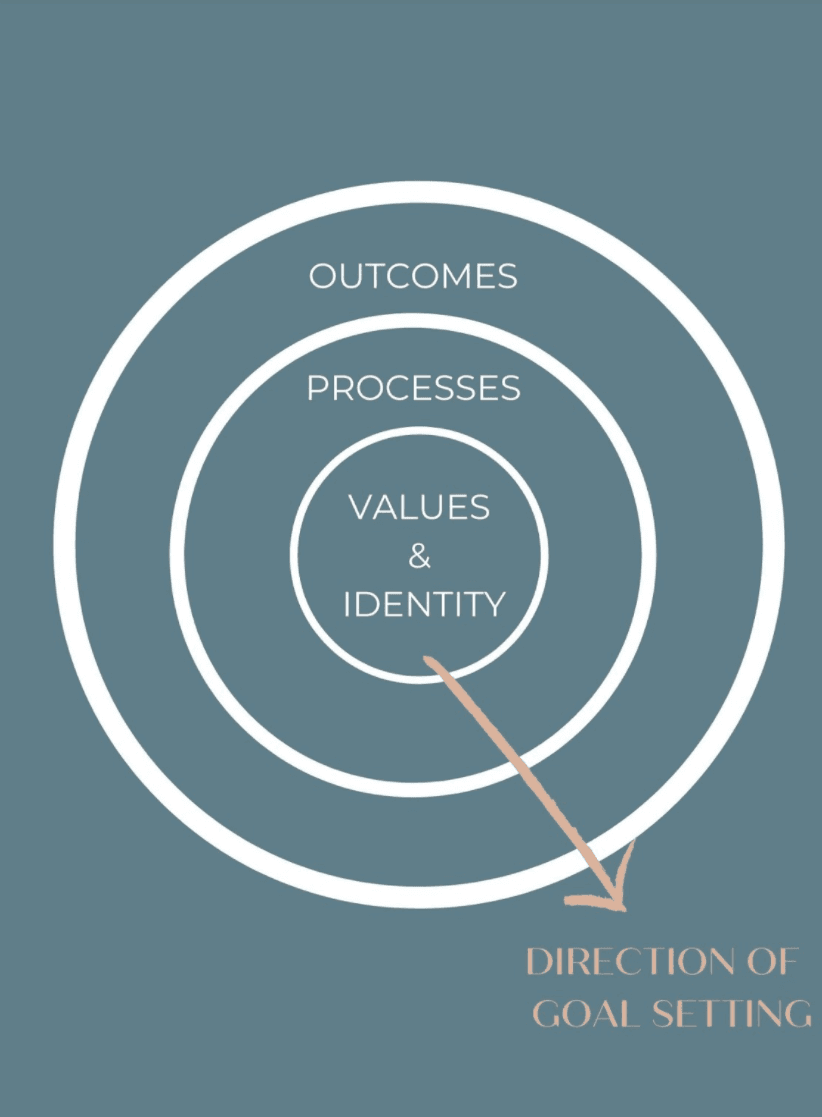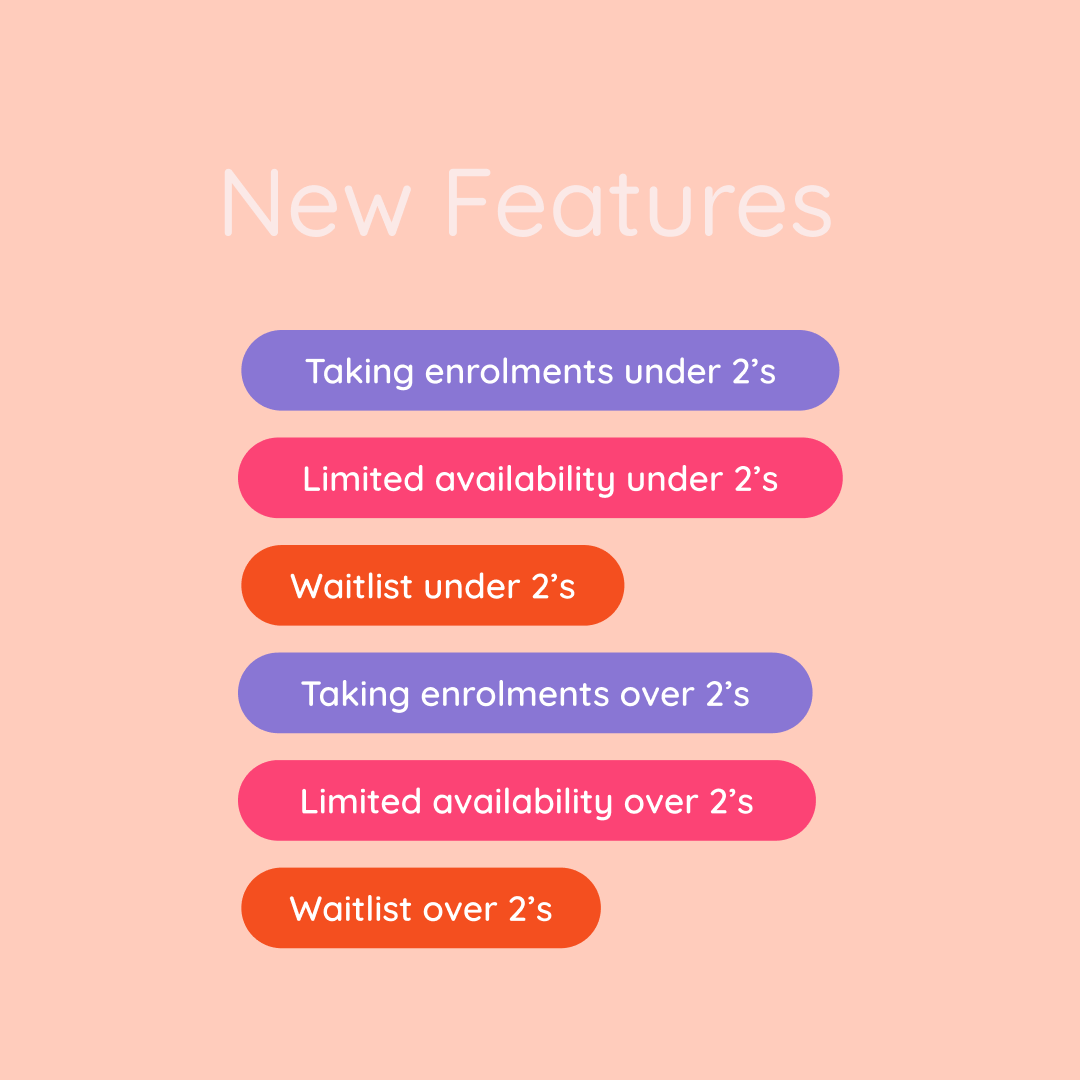How to choose coping strategies that work for you and your family.
In this post we will help you identify your why, the values that underpin your desire to look after yourself, and offer tips on how to stick to the plan even when the going gets tough.
Laura McAlpineFebruary 10, 2022


In this era of social media where every second influencer is a health expert, it's easy to feel bombarded and overwhelmed with information about how to best look after yourself. Tips, strategies and strongly-worded advice on things you absolutely "must do" to improve your physical and emotional wellbeing can come at you from all angles. If you're not sitting in your ice bath, holding a cacao ceremony while practicing mindfulness, then surely something's wrong with you? Well, no. And if you find that all the well intentioned advice renders you into inaction, you're not alone.
As health professionals (a psychologist and a certified health coach) it's our job to help people change their behaviour and learn new ways of coping. We have an armory of tools we teach people time and time again. Very often, we see them pick up those tools, make some changes and go away feeling better. But does it last? Just because a professional told you to do it, will the change stick ? What makes you carry on with those health-enhancing behaviours once your appointments stop? Very often, life gets busy and good intentions fall by the wayside. And as busy parents of young children ourselves, we know that the wayside is usually mere seconds away!
So how do you prioritise your physical and emotional wellbeing, choose coping tools that not only work for you, but that you'll keep practicing even through the trenches of parenting? In this post we'll help you identify your "why", the values that underpin your desire to look after yourself, and offer tips on how to stick to the plan even when the going gets tough.
Finding your "why"
If you've stumbled across this article, chances are you've already started to consider looking after your wellbeing. And somewhere in that thought process you may have begun to consider why it's important to you. So, let's have a go at making that a little more formal.
What would your answer to this question be?
Why is it important for me to look after my physical and emotional health?
Your first answer will give you some information, but is likely to be a bit on the superficial side. So let's ask "why" again and keep going until we start to hit the real heart of the matter. It might look something like this:
Answer one: because I've been feeling really stressed
Why is it important to you to feel less stressed?
Answer two: because I become a really grumpy mum when I'm stressed
Why is it important not to be so grumpy?
Answer three: because I often feel guilty at the end of the day
Why is it important to you to change how you feel at the end of the day?
Answer four: because I'm so busy and I feel like I have so little time with the kids anyway. They're growing up so fast and I don't want to miss out on the time we do have together.
Why is that important?
Answer five: because I want them to feel loved and connected to me
Asking why (as many times as you need to, there's no magic number) can start to give you a sense of what's driving you to consider your wellbeing. You can see in this example that talking about the desire to decrease an unpleasant feeling, in this case stress, moved to unearthing a couple of fairly powerful values: love and connection. This exercise requires you to slow down and consciously consider the deeper drivers that underpin your motivation in any given instance.
As a new mum, you may have found that your world changed pretty substantially (and maybe that's an understatement!). It's likely to be one of the times in your life where you feel most discombobulated. Perhaps questions such as “who am I now?” and “what's my direction?” run through your mind pretty frequently. We've found that this simple exercise of asking "why", applied to all sorts of situations, can really start to help you gain a little clarity. You may not come up with all the answers right away and that's perfectly ok. Think of this as an experiment; you're constantly collecting data and learning more about what's worth keeping and what's worth chucking. Along the way you'll begin to uncover a clearer sense of who you want to be. And as you'll learn a little later in this post, that's pretty crucial if you want to be effective in making change.
So, you're beginning to understand your "why" - but what helps you steer the course?
Values: what are they and why do they matter?
For many of us the events of the past two years have increased our sense of unease, worry, stress and anxiety. Lets face it, the first few years of parenting carry an enormous amount of pressure anyway, but throw a global pandemic into the mix and it's easy to feel like you're losing your mind. Looking after ourselves has probably never been more important, yet how difficult is it to prioritise ourselves when life is going smoothly, let alone when things go pear-shaped? Wouldn't it be nice to have some tools to promote a more general sense of calm and maybe even something to lessen the effects of the storm when it hits?
Here's where values come in. They are, at the simplest level, the things you find meaningful in life. They're what you care about and consider to be important. For example, "kindness", "connection" and "achievement" are all values, as are "health", "community" and "challenge".
So why are values important when it comes to looking after yourself?
Well, as we've alluded to, putting your own needs first when you're a parent to young children is hard. Harder still on the bad days, and damn near impossible when the bad days stack up. And what does it feel like when you're parenting from an anxious, exhausted, irritable headspace? It's probably a trillion times harder to be the parent you want to be right? So self-care and keeping on the level becomes pretty important.
The literature shows us that we're more likely to take regular actions in line with who we want to be when we have a clear sense of our values. As Russ Harris demonstrates here we are constantly making decisions about who we want to be as a person. When things are going well it's easy to choose actions in line with the type of person we want to be and lead a fulfilling and meaningful life. But life doesn't always run so smoothly and sometimes thoughts, feelings and situations crop up that are difficult to grapple with and we make "away moves".
Here's an example of how that might play out. Let's say you're someone who really values helping in the community. Your child's early learning center has asked for some help at a fundraising event and you would love to contribute. However, as the day draws closer, thoughts start popping into your mind: “what if my kids misbehave while I'm working on the stall?” “what if the cupcakes I've made aren't good enough?” The catastrophic thoughts roll on, anxiety starts to creep in and you begin to wonder if you should still contribute. An "away move" here would be to opt out and withdraw your help. That choice is okay here and there, we all do this. But over time, opting out of things that align with your values can be a slippery slope to low self-worth, anxiety and depression. So getting a little clearer about what values are driving you on a daily basis can be really effective in keeping you on track and sticking with those "towards moves".
Defining your values
You've learnt that values can help you steer the course. Great! But how do you know which values are important to you? Well, we have many different exercises to help uncover the answers to this. If you're someone who likes to visualise then have a crack at this…
Close your eyes and imagine you're sitting in a nice room or a beautiful garden, somewhere you feel comfortable. Take a moment to acknowledge the body you are in and the mind that comes with you. This body, this mind, have been with you for many years, working hard to make a happy life.
Now imagine you're in your later years, sitting in the same spot contemplating the life you've lived. As you look back, you feel a deep sense of satisfaction, joy and contentment. Life hasn't always been easy but you've managed to stay true to yourself to the best of your ability.
Which core values are represented in this life?
What values came through for you? Generosity? Knowledge? Creativity? Health? The list can be long and if you're just beginning this journey maybe talking about values with people you trust could help further define them.
Or if you're someone who prefers to put pen to paper you could have a go at the Life Compass.
Are any values more important than others? Nope! Should my values always stay the same? Nope! Can I have more than one value? Sure! Life changes and so it makes sense that your values change as you go through different stages. What matters here is that you have some sense of what's important to you. The impetus to keep going when the going gets tough…
Making change
So you've defined your "why" - “I want to look after my physical and emotional health so that my stress levels reduce and I'm more present and connected to my children”. And your underpinning values are love and connection. This has helped to hone in on what's important to you, identify what to prioritise and where to put your precious time and energy. Having a clear sense of your values ultimately enhances your motivation, making it more likely you'll stick with your plan of change. But what about actually doing it? How do you ensure that when (not if) your initial plan starts to waiver, that you can stick with it?
In his book Atomic Habits James Clear defines three levels of behaviour at which change can occur:
- Outcome - what you get (e.g. losing weight)
- Processes - what you do (e.g. routines, systems that support better life flow)
- Identity - what you believe (e.g. self-image, world view and judgements about self and others)

What tends to happen is that outcome focussed goals only sustain for so long and inevitably old habits creep to the fore. Working from the inside out, choosing first the identity you want to invoke (i.e. your "why" and values) better supports long term behaviour change. That, coupled with some fool-proof actions, and you're away!
How do I make my actions fool-proof?
It's all about small wins. Changing habits is a tricky business and your brain can be pretty hard wired to work a certain way. If you're trying to change things up the kindest way to do this is through a series of small wins. Translated, that means MAKE IT EASY. Here's how it might look:
I've identified that one of my values is connection.
My identity as a mother is that I am connected to my kids.
My process is that I will choose to put my phone down and make eye contact when my children ask me a question.
Small win? I'll do this one time each day. I think I can cope with that!
Or, I've identified that one of my values is community engagement. My identity is that I am helpful. My process is that I will book a time to talk to the kindergarten manager on Tuesday after I drop the kids off. Small win? I will sign up to clean the kitchen at the kids' kindergarten once a week.
Putting it all together
So you've figured out your "why", you're becoming clearer on your values and you have some small actions you can take to achieve that values-based goal. Good on you! If you've made the actions small enough then chances are you're already feeling pretty confident to get going with that today. And if you keep applying this formula you're well placed to implement some really great tools to look after yourself and create some calm in your life.
So the next time you hear about that health enhancing behaviour you really must do, put it through this test. Does it fit with your values? Yes? Try it out! No? Chuck it and put your precious time and energy into something that's just right for you.
Remember:
Find your why - consider your values - action some small wins.
Still feeling a little lost? No problem. We talk about these strategies and much much more in our group CALM for Mums and we would love you to join us.
This is a guest post by Laura McApline. Laura is a pyschologist and runs the CALM for mums course with Kirsten Rose health coach. This course helps you by providing practical solutions and strategies to regain the calm and collected version of yourself.


